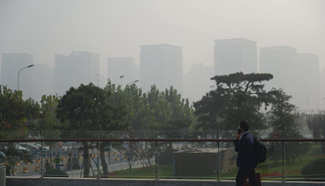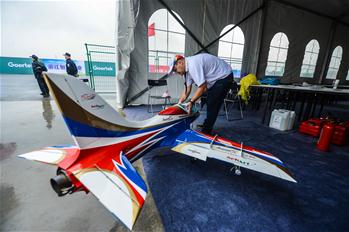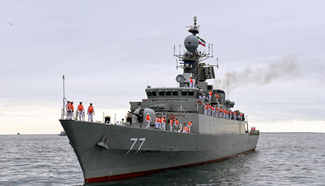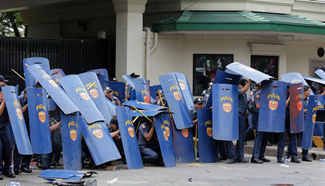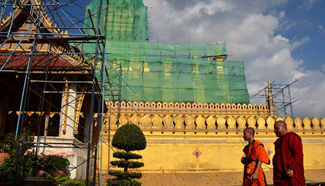WASHINGTON, Oct. 19 (Xinhua) -- Despite high concern and strong opposition in East Asia, the U.S. Secretary of State John Kerry on Wednesday said the United States would deploy the highly controversial Terminal High Altitude Area Defense (THAAD) anti-missile system to South Korea "as soon as possible."
"We will deploy as soon as possible a Terminal High Altitude Area Defense battery to our Korean ally", Kerry said at the start of two-day foreign and defense ministerial talks between the two countries in Washington, vowing the United States would "do whatever is necessary" to defend its allies in the region,
"The recent dramatic increase in North Korean nuclear tests and ballistic missile launches remind us of the grave threat it poses to our collective security," said U.S. Defense Secretary Ash Carter at the start of the talks, reiterating the U.S. commitment to provide "extended deterrence, guaranteed by the full spectrum of U.S. defense capabilities".
The term "extended deterrence" refers to the use of U.S. nuclear force to deter attacks on its allies. During the Wednesday talks between Kerry, Carter and their South Korean counterparts, the two sides reached an agreement to set up the "Extended Deterrence Strategy and Consultation Group."
However, the saying that the U.S.-built THAAD can counter the nuke and missile threat from the Democratic People's Republic of Korea (DPRK) is merely a ruse, many analysts in the region argue, fearing its deployment will only worsen the already extremely volatile situation on the Korean Peninsula.
China and Russia have expressed strong opposition to the THAAD deployment as the system far exceeds South Korea's actual defense needs and would directly threaten the strategic security of the two countries.
On Monday, the UN Security Council strongly condemned the DPRK's most recent failed ballistic missile launch, the latest in a series of provocations by the DPRK following its fifth nuclear test last month.
Seoul and Washington announced in July an agreement to install one THAAD battery in South Korea by the end of next year.




